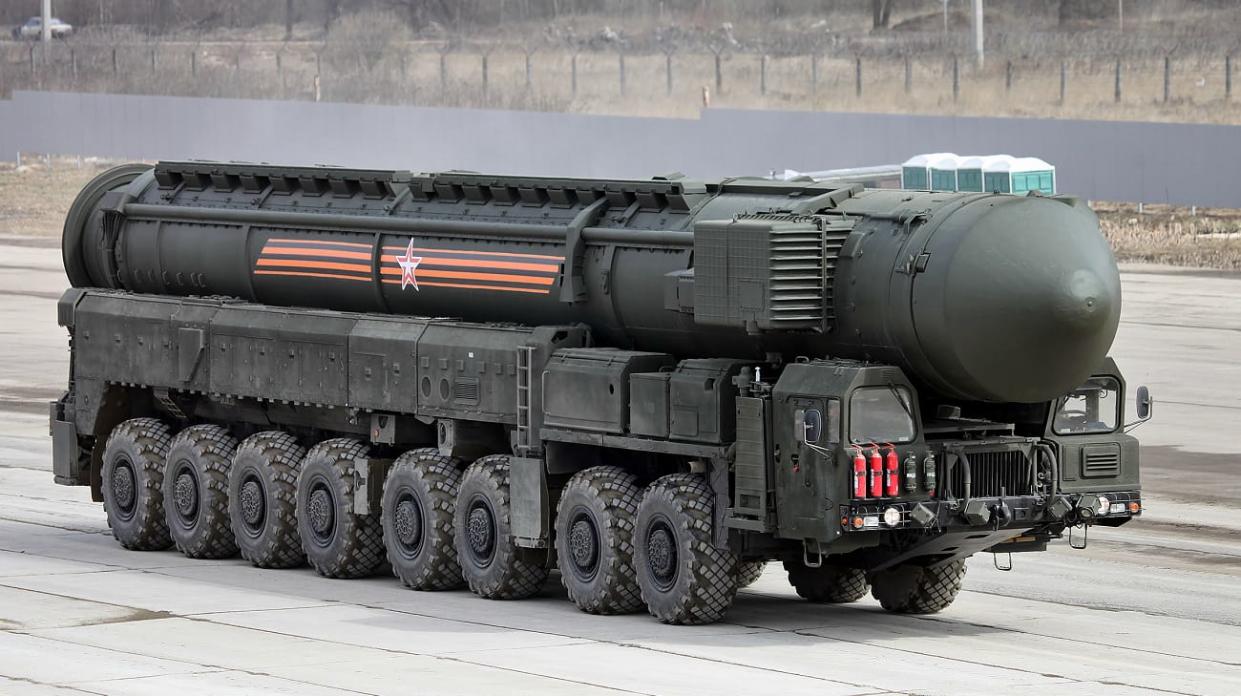Russia tests Yars intercontinental missile to instil fear in West – ISW

Russia has tested the RS-24 Yars intercontinental ballistic missile in order to instil fear in Western audiences and thus weaken Western support for Ukraine.
Source: Institute for the Study of War (ISW)
Details: The Russian Ministry of Defence announced on 1 March that Russian troops had successfully conducted a live-fire exercise of launching the RS-24 Yars intercontinental ballistic missile equipped with a multiple independently targetable reentry vehicle (MIRV).
Putin also stressed during his address to the Federal Assembly on 29 February that Russia possessed weapons that could strike Western countries.
ISW continued to assess that the Kremlin often uses nuclear threats to instil fear in Western audiences and weaken Western support for Ukraine.
Military analysts said that Russia's use of nuclear weapons in Ukraine and beyond was unlikely.
For reference: The RS-24 Yars is a strategic system based on a solid-fuel intercontinental ballistic missile. It was adopted by the Russian Federation in 2009.
The system is equipped with a warhead that separates into 3 to 6 warheads, depending on the modification, each of which can hit a different target.
The missile's flight speed can purportedly reach Mach 14, and its explosive power is equivalent to one million tonnes. Propagandists claimed that no missile defence system is capable of shooting it down and that a Yars missile can completely destroy a small town.
To quote the ISW’s Key Takeaways on 1 March:
Reported details of Russian-Ukrainian peace negotiations that occurred in Istanbul in April 2022 indicate that Russia has consistently envisioned a settlement for its illegal invasion of Ukraine wherein Ukraine would be unable to defend itself from a future Russian attack – an objective Russia continues to pursue under calls for Ukraine’s "demilitarisation."
Reported details of the draft treaty suggest that Russia intended to use the treaty to set conditions for future attacks against Ukraine while also prompting the West to make concessions on Ukraine’s sovereignty.
Russian authorities suggested that the Kremlin has likely adopted a more extensive set of goals regarding Ukraine over the course of Russia's war against Ukraine.
Russian President Vladimir Putin appeared to disparage Russian elites in his 29 February Federal Assembly speech, more closely aligning himself with the veteran and military community and drawing praise from ultranationalist milbloggers.
Kremlin officials met with leaders of the pro-Russian Moldovan autonomous region Gagauzia and emphasised Russia’s support for Gagauzia against perceived Moldovan "oppression" on 1 March.
Ukraine and the Netherlands signed a 10-year bilateral security agreement on 1 March.
Russian forces made confirmed advances near Avdiivka and Donetsk City on 1 March.
Russian authorities will likely use annual combat training for Russian reservists to support crypto-mobilisation efforts.
Support UP or become our patron!

